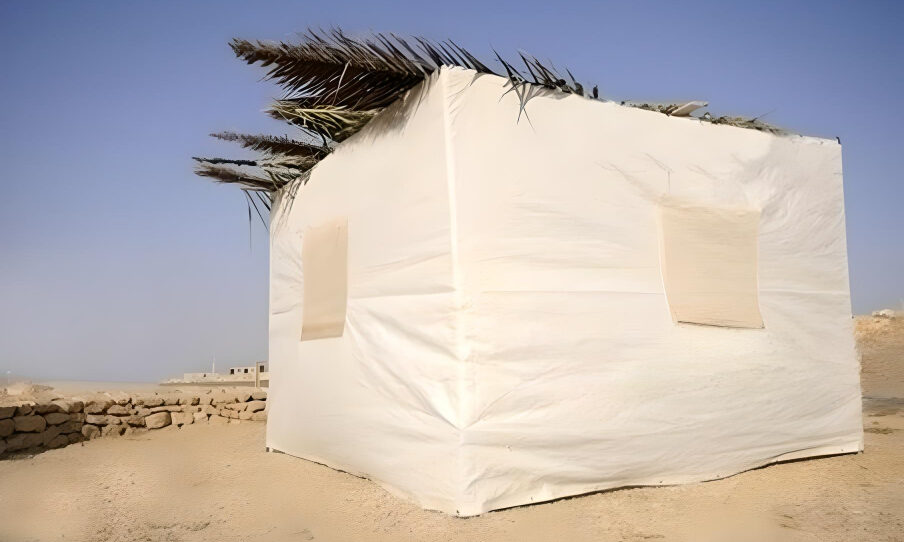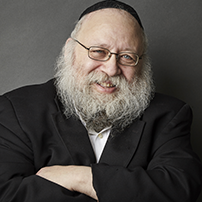
The Season of Our Rejoicing
The Festival of Sukkos is the third of the so-called pilgrimage holidays. The first is Passover, the anniversary of the Exodus from Egyptian bondage; the second is Shavuos, the anniversary of the giving of the Torah at Mount Sinai and the third is Sukkos, which commemorates the way we were housed in the desert for 40 years.
Although all three Holidays are designated as days of rejoicing, as commanded by the Torah, only Sukkos is officially named “The Season of Our Rejoicing” in our liturgy,
What is so unique about Sukkos that earned it this unique title? One would think that Passover, which commemorates our freedom amidst so many miracles, would have been a more significant cause for joy.
What have You Done for Me Lately?
One simple explanation is that Sukkos reminds us of G-d’s continuous care for our needs, as opposed to Passover, which commemorates a one-time miracle. For 40 years the Jewish nation sojourned in the desert as beneficiaries of G-d’s protection, symbolized by the Sukkah. There is a well-known refrain heard from people who have been the beneficiary of kindness in the past: “so what have you done for me lately?”
Sukkos is Biblically known as the “Chag Ha’asif- theHoliday of Ingathering.” The festival occurs at the time of the year people gathered their crops and brought the harvest into their homes. This obviously generated feelings of joy.
Spiritually speaking, the Holiday or Festival of Ingathering is about harvesting the inspiration and spiritual energy generated during Rosh Hashanah and Yom Kippur and then bringing it into our lives and homes. When we internalize our blessings in this way, we experience a more profound measure of joy.
Three Principles of Faith
We can offer a third explanation as to why the joy of Sukkos surpasses that of other Holidays based on the premise that the three Festivals parallel three fundamental principles of faith.
Maimonides’ Thirteen Principle of Faith are well known. However, R. Yosef Albo (1380-1444), in his classis work Ikarim takes issue with Maimonides and pares down the number of principles to three. Obviously, R. Yosef Albo did not dispute the belief in all 13 principles. His critique simply was that all 13 can be consolidated into three Principles; the other 10 are merely their branches or offshoots.
According to this view, the three Principles are: Belief in G-d the Creator, Divine authorship of the Torah and reward and punishment otherwise known as accountability.
Three Chapters of Genesis
R. Yosef Albo claims that we can find each of these three principles highlighted in the Torah:
The very first chapter of Genesis deals with G-d as the Creator. This is followed by G-d’s instructions to Adam, which relate to the principle of the Divine authorship of the Torah. This is followed by the punishment meted out to Adam and Eve and then to Cain and highlights the principle of accountability.
Three Themes of Rosh Hashanah
R. Yosef Albo also connects these principles to the three themes of our liturgy on Rosh Hashanah: Machiyos-Sovereignty, Zichronos-Remembrances and Shofros-Shofar.
G-d’s sovereignty obviously relates to His role as the Creator. The theme of Remembrance is about accountability to G-d who remembers all of our deeds. Shofar alludes to the giving of the Torah at Mount Sinai which was accompanied by the sounding of the Great Shofar.
Three Dimensions of Shabbos
Rabbi Yeshaya Halevi Hurvitz (1565-1630), in his classic work the Shaloh writes that these three themes also are represented by three dimensions of Shabbos:
There is Shabbos Bereishis, the dimension of Shabbos that focuses on G-d’s role in Creation. The second Shabbos is the Shabbos of Mattan Torah. The revelation of G-d on Mount Sinai, our Sages state, occurred on a Shabbos. And the third Shabbos is the Shabbos of the future; when we will enjoy the reward for our Mitzvos.
The Tur (an important Halakhic code composed in the 14th Century by R. Yaakov ben Asher) states that the three Shabbos themes are represented by the three prayers we say on Shabbos; the evening, morning and afternoon prayers.
Parallels the Three Pilgrimage Festivals
Some have suggested that these three themes are also featured in the three Pilgrimage Holidays:
Passover, which commemorates G-d’s miracles, highlights the belief in G-d’s exclusive power to alter nature because He is its Creator.
Shavuot is obviously the holiday that exemplifies the Divine origin of the Torah.
And Sukkos, which reminds us of G-d’s providence, the underlying principle is one of accountability; the notion that G-d cares about our actions and will ultimately reward us for them.
Furthermore, the Messianic Age is the time when we will receive our ultimate and permanent reward. G-d will spread upon us His Sukkah of Peace as we recite in the Friday night liturgy.
We can now understand why Sukkos is singled out as the Season of our Rejoicing. It represents, and is a taste of, this ultimate period of reward. Whereas Passover and Shavuot remind us of G-d and our responsibilities to Him, Sukkos deals with the ultimate objective of Creation – to make the world a dwelling place for G-d – and represents the ultimate implementation of the teachings of the Torah.


